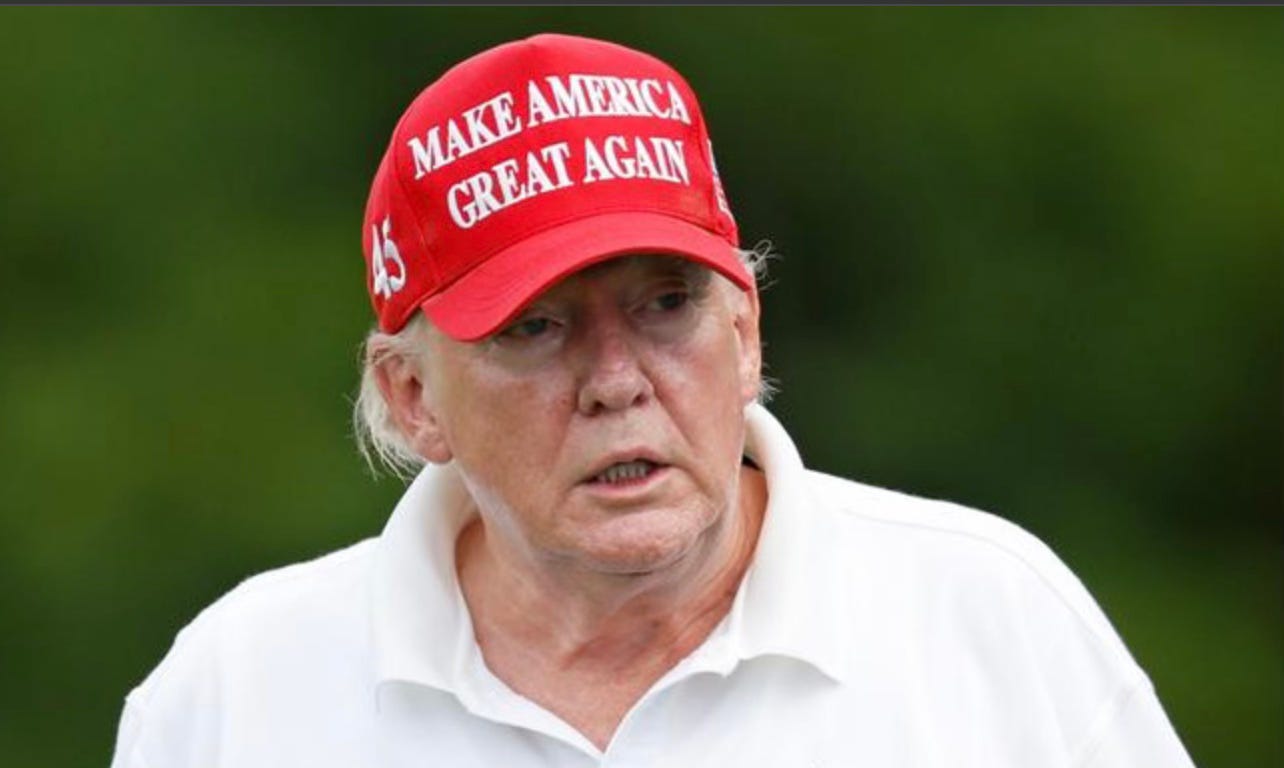Trump Has A Fight On His Hands
His window to sleepwalk America into fascism has closed.
If I’d had to sketch out a nightmare scenario for Donald Trump’s second term, before he took office, it would have borne some resemblance to what’s transpired since inauguration day—a complicit Republican Congress, a supine Democratic opposition, an orgy of cronyism and corruption. But it wouldn’t have included a campaign of tyranny against the civil service, nor several other destabilizing things Trump has actually done.
To me, the real worst-case would have been a Trump who managed to kill democracy with kindness. Not kindness the way well-adjusted people think of kindness (Trump is incapable of genuine kindness) but a boorish mix of affected magnanimity and braggadocio meant to maximize good will in the immediate term. Trump inherited a strong economy and, as he prepared to take power, consumer sentiment began to climb—not on the basis of any meaningful improvement in underlying conditions, purely on the basis of the widespread misperception that Trump had been, and would again be, an excellent steward of the U.S. economy.
I believed (and wrote at the time) that Trump could become genuinely popular simply by chilling out a bit: rebranding the economy he inherited as his own and coasting on it, so that his loudest critics would seem hysterical. Absent the worst of his promised disruption and abuse, people would sink into apathy, and he’d have wide berth to corrupt the government in methodical fashion.
Instead Trump handed Elon Musk the keys to the bureaucracy, along with permission to shatter fragile processes and fire workers indiscriminately. He began monkeying with the economy in erratic ways, which has sent inflation expectations higher. He raced to upend the rule of law and, now, to assert partisan control over the military, which has rapidly transformed the U.S. from a notionally rule-and-merit-bound state to one that has shed even the pretense.
The result has been to cashier the public’s misguided but long-held trust. Most Americans have never liked Trump, but even at his lowest moments he’s been able to convince majorities that he knows his way around the economy. Not anymore. He’s now well underwater. He’s at -8 in both the Washington Post/Ipsos poll (45-53) and Reuters/Ipsos (39-47), and -4 in Quinnipiac (44-48).
And though this is a terrible way for the country to awaken to the truth, it’s the least-worst development under the circumstances. Because without public trust (let alone actual popularity) Trump can’t sleepwalk the country into dictatorship. To pull that off, he’d need to become more popular, but he is becoming less so.
ROYAL FLUSH
I don’t mean to sound sanguine. Ideally you’d want to stop fascism by never letting it close to power, rather than allowing it to take over, and hoping it fails of its own accord. As of late February, we can’t be certain that Trump will fail—just that he won’t waltz to victory—and even if he does fail, there are serious downside risks in the way he’s going about it.
I’ll elaborate on those in a minute. But first let’s try to reason through why the public turned on Trump so fast.


